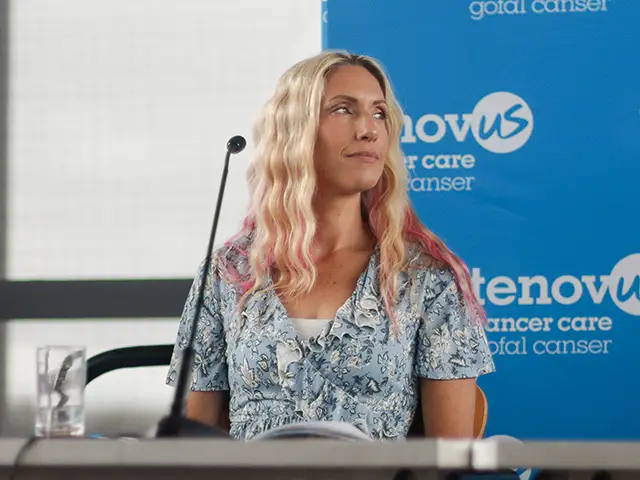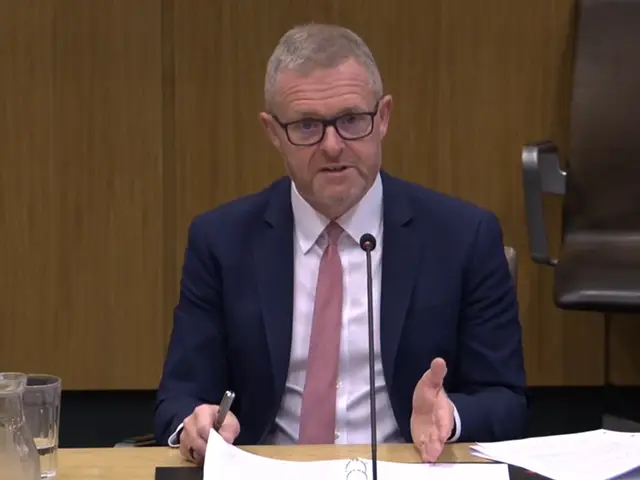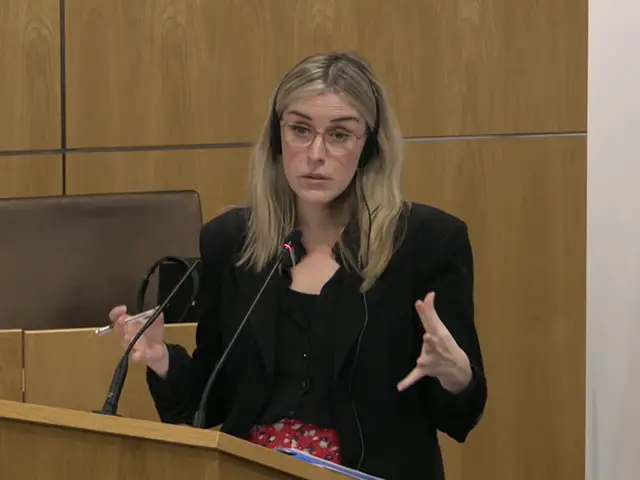Support quality, independent, local journalism…that matters
From just £1 a month you can help fund our work – and use our website without adverts. Become a member today

A mum-of-one who can never have the second child she wanted after surviving cervical cancer says women are being let down by “slow progress” on promised health reforms.
Jessica Mason, 43, spoke out amid concerns that 15 of an inquiry’s 26 recommendations to improve gynaecological cancer care in Wales remain undelivered nearly two years on.
The Senedd health committee’s inquiry was inspired by Claire’s campaign – launched by Claire O’Shea, who died aged 42 from gynaecological cancer in May.
Her campaign seeks to change health services in Wales for women living with cancer who are too often dismissed, downplayed, unheard and misdiagnosed.
Ms Mason, from Penarth, was forced into an early menopause and had a hysterectomy to survive her cervical cancer, which was repeatedly misdiagnosed. She felt “fobbed off” every time she went to the GP with symptoms of the life-threatening disease.
‘Slow progress’
Ms Mason warned “slow progress is as consequential as no progress” for women affected by the issues highlighted by Claire’s campaign and the resulting inquiry.
She said: “While we welcome the ongoing commitment to prioritise gynaecological cancers by the Welsh Government – concrete, impactful actions must swiftly follow.
“Claire turned her negative experience of getting her cancer diagnosis into a positive, forceful campaign to ensure no other woman goes through the same thing. We need to see an improvement in gynaecological cancer outcomes but progress does seem slow.”
She made the comments as the health committee held a short follow-up inquiry to scrutinise the Welsh Government’s response to its recommendations.
In its evidence, Tenovus Cancer Care said only three of 26 recommendations have been fully actioned, with seven showing partial progress and 15 remaining undelivered.
‘Roll of the dice’
Calling for accountability, the charity said: “We collectively have a responsibility to ensure the bravery and honesty of women like Judith Rowlands, Ceri Davis and Claire O’Shea, who shared their stories – and have subsequently died – is not in vain.”
Tenovus warned of huge variation in waiting times across Wales, with the likelihood of receiving timely treatment down to “something between a roll of the dice and a coin toss”.
Target Ovarian Cancer told the committee Wales has some of the worst survival rates for ovarian cancer in Europe while Marie Curie cautioned end-of-life care is at breaking point.
Warning of systemic pressure, the Royal College of GPs said demand for suspected cancer referrals continues to rise faster than diagnostic and treatment capacity.
GPs cited shortages in imaging, ultrasound and pathology services as a critical barrier, with backlogs for hysteroscopy investigations taking up to 12 months even for urgent cases.
‘Mixed picture’

Wales’ health secretary Jeremy Miles described progress as a mixed picture as he appeared before the health committee today (October 15).
He said: “If you look at the waiting times for access to treatment, clearly, that is not where it needs to be. There’s been some improvement but… there’s a long way to go.”
Mr Miles added: “Has the overall experience of women with gynaecological cancer improved to where we want to be? The answer to that is clearly not yet.”
Pressed about resources, Mr Miles suggested no additional funding has been specifically allocated to addressing the recommendations of the committee’s report.
On waiting times – with an average of only 32.4% of patients waiting 62 days or less to start treatment against a target of 75%, according to July’s statistics – the health secretary said: “It is absolutely nowhere near the level of performance that I, or any of us, want to see.”
‘Gender health gap’

Sarah Murphy, whose responsibilities include women’s health, described the Unheard report as seminal in drawing attention to gynaecological cancer and giving women a voice.
She pointed to the women’s health plan, a ten-year vision to close the gender health gap. Asked why gynaecological cancer was not included, Ms Murphy said the plan focuses on addressing inequalities, medical gaslighting, and women not being believed.
The mental health minister told the committee: “It’s not a priority in the women’s health plan. There are eight priorities and gynaecological cancer is not one… and the reason for that is that it’s in the cancer pathway and in the cancer improvement plan.”
Sue Tranka, the chief nursing officer for Wales, suggested many of the issues – such as women not being believed about pain – extend wider than gynaecological cancer.
This sense of women being dismissed was a theme of a 2024 Senedd debate on the report. Plaid Cymru’s Mabon ap Gwynfor argued that after facing “medical gaslighting” from doctors, the Welsh Government’s response meant women were now being “gaslit twice”.

Support quality, independent, local journalism…that matters
From just £1 a month you can help fund our work – and use our website without adverts.
Become a member today
